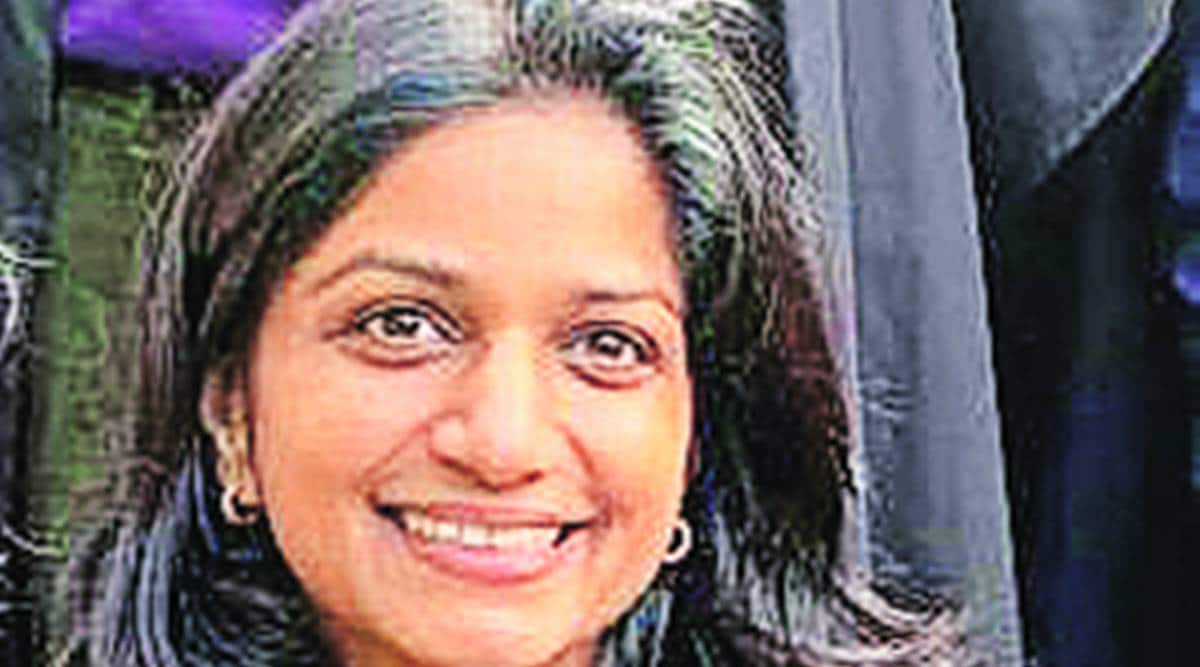 Gitanjali Yadav is associated with the National Institute of Plant Genome Research, New Delhi. (Express photo)
Gitanjali Yadav is associated with the National Institute of Plant Genome Research, New Delhi. (Express photo) With the global penetration of data sciences and Artificial Intelligence (AI) into almost all fields of scientific research, plant biologist Gitanjali Yadav has taken up the task of introducing these latest tools to young Indian researchers.
Yadav, who is associated with the National Institute of Plant Genome Research, New Delhi, and is on joint deputation as a lecturer at the Department of Plant Science, Cambridge University, has been selected for the 2021 SASTRA-National Science Day – Obaid Siddiqi award.
The other SASTRA awardees include Prof Ajoy Ghatak, a NASI Meghnad Saha Distinguished Professor, Prof AK Ganguli from IIT-Delhi and Prof Mugesh from Indian Institute of Science, Bengaluru.
One of Yadav’s latest research endeavours has been to map some 2,000-odd plant species, mostly wild ones, native to Sino-Indian, trans-Himalayan and south American regions, in order to understand their adaptation and varying chemical emissions.
Despite having the same DNA, plant species growing in different geographical regions have very distinct emission profiles, and this has long been known to be influenced by local ecology of the region.
“Using AI, we are trying to identify ecological factors that may influence the chemical arsenals of distinct species, for which we have taken into account abiotic factors like soil types, soil moisture, temperature, altitude, location, temporal variations, as well as biotic factors namely pollinators, seed dispersers and other plants in the neighborhood.
There are questions one cannot address simply by knowing the plant DNA,” said Yadav.
The pandemic, says Yadav, gave her the opportunity to make effective use of social media platforms, like Twitter, to reach out to the science-appreciating general public and connect with society like never before.
She introduced Women enabled for Virtual Induction as Data Youth and AI (We-Vidya), wherein she offers regular lessons in AI and coding to Indian women, with help from her colleagues at Cambridge.
Many of her formative years working as a scientist were largely spent within her own laboratory at NIPGR, but her lectureship at Cambridge University starting in 2016 gave Yadav a taste of science communication and outreach.
“At Cambridge University, everybody was involved in science outreach and it is part of the job there. I discovered that I liked it and replicated my work in India,” said Yadav, who is also a member of the Indian National Young Academy of Sciences (INYAS).
But in recent years, India has also made huge strides towards meeting global standards in science communication and diversity, the NIPGR scientist noted.
With help from INYAS and TIGR2ESS, she has been offering specialised training in coding for AI and Genomics under the ‘Protocols From Home’ banner.
“These efforts have not only enabled us to overcome gender disparity, but also to combine strengths across diverse subject researchers, innovators and the industry, during the pandemic, to address global challenges,” she said.
The awards will be presented virtually on February 28, which is celebrated as National Science Day.